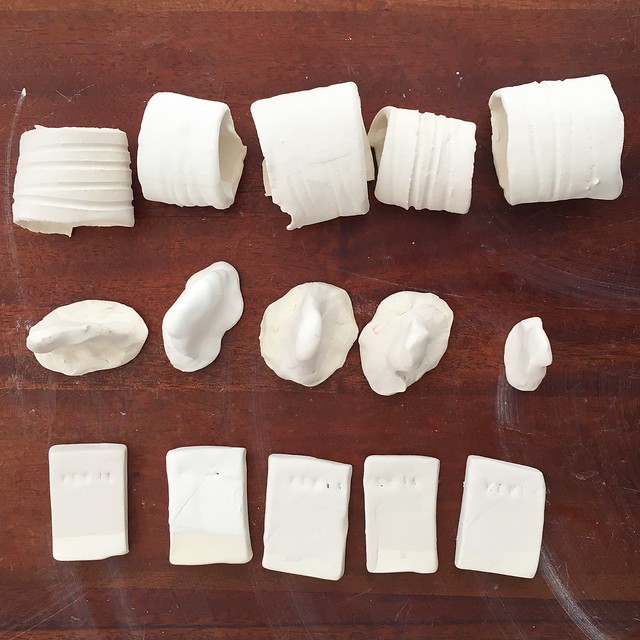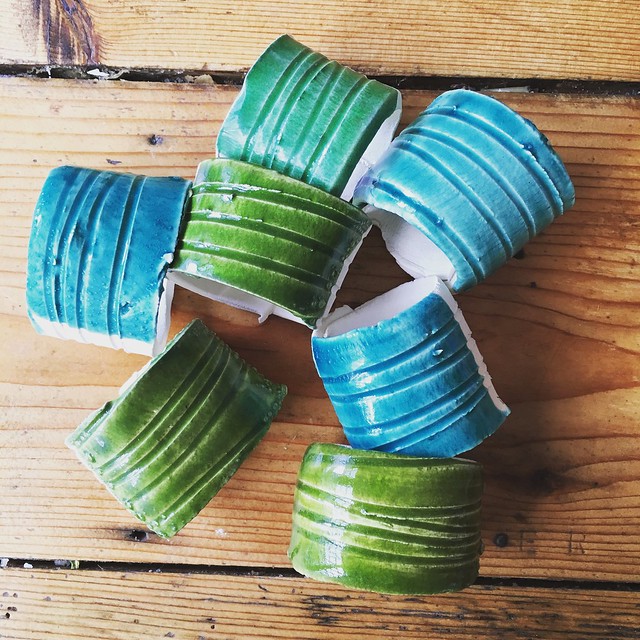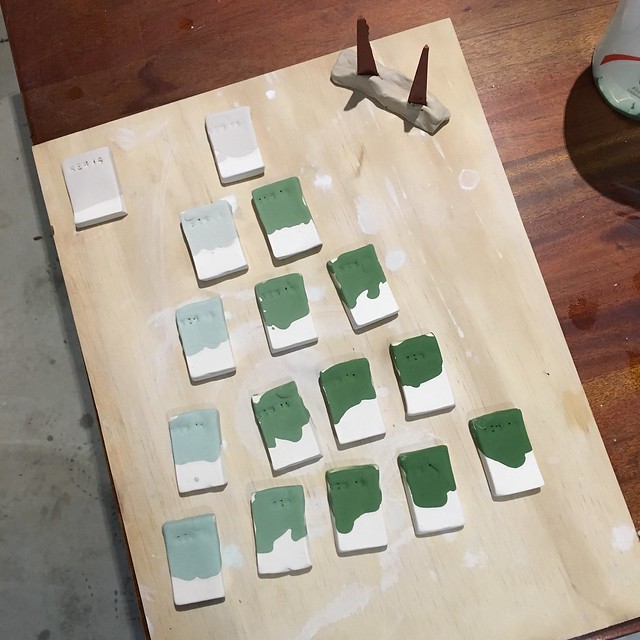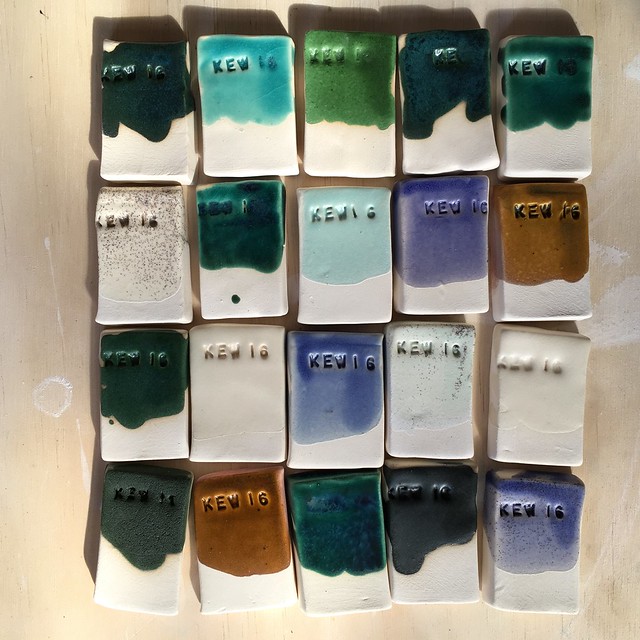Testing of five different Cone 04 matte or satin base recipes. All of the recipes have very similar ingredients, but different ratios.
These tests weren't ultimately successful as a week later four of them had crazed.
Retesting Julie's Satin (JMBC) and also testing a variation (JMBC revA), revised using hints from Glaze Simulator.
A. Jackie's Matte via Priscilla Hollingsworth
38 Gerstley borate
10 Lithium carbonate
5 Nepheline syenite
5 Eckalite 2
42 Silica
5% Zircosil
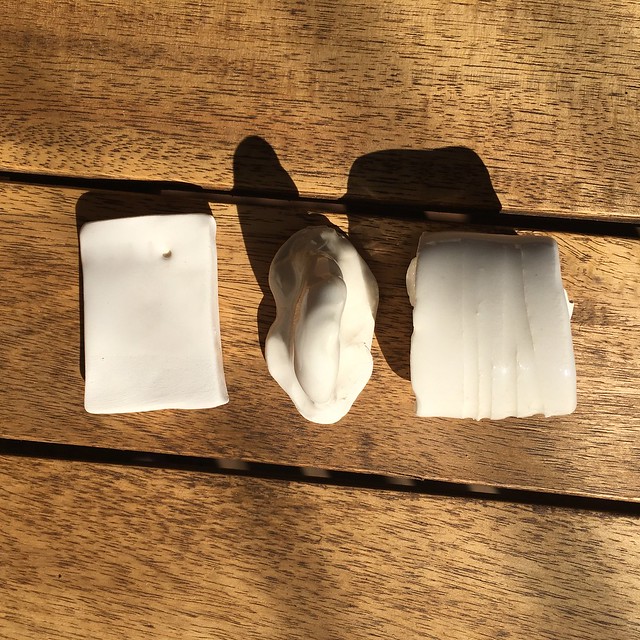
B. Satin Base (from here)
65.5 Ferro frit (4124) 3124
11 Nepheline syenite
5 Eckalite
42 Silica
C. Julie's Satin (from here)
27 Gerstley borate
7 Lithium carbonate
17 Whiting
4 Nepheline syenite
11 Eckalite 2
34 Silica
D. Hirsh's Satin Matte
32 Gerstley borate
9 Lithium carbonate
17 Whiting
4 Nepheline Syenite
4 Eckalite 2
35 Silica
2% Bentonite
E. Julie's Matte revised to fix crazing (JM rev A)
27 Gerstley borate
6 Lithium carbonate
17 Whiting
4 Nepheline syenite
12 Eckalite 2
34 Silica

